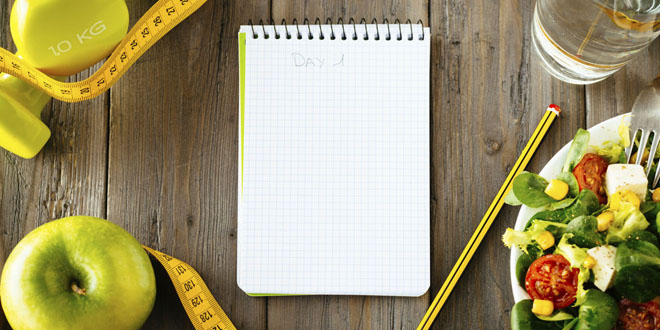
The Importance Of Keeping A Food Diary To Lose Weight
Dear diary…
A good old fashioned food diary can help you with your weight loss program in more ways than one. The thing is, when you start keeping tabs on what you eat, how much you eat, and when you eat during the day, you realize that you’re either consuming fewer calories than you should or more than you thought you were. Either way, this discovery proves that your weight loss agenda is not going as planned. Keeping a food diary can solve this dilemma! While food diaries can also be maintained on your computer or cell phone, the best way to start off is to buy a small notebook for the purposes of journaling your daily dietary habits.
Why Is It Important To Keep A Food Diary?
Keeping a food diary is important for two major reasons:
- It instills a sense of accountability in you: If you knew that you had to jot down everything you ate in your food diary, you would think twice before eating at least half the things that you snack on during the day. This sense of accountability keeps dieters on their toes and motivates them to stick to the right foods.
- It helps identify the problem areas: keeping a food diary can help you work on areas that require improvements. For instance, you will be able to identify when your cravings get the better of you and will be able to take suitable action to fix this problem.
What Does Research have to Say?
The American Journal of Preventive Medicine published a study conducted on 1685 obese or overweight American participants aged 25 years and above. The study spanned over a period of six months during which the participants were required to maintain food diaries, adopt a healthy diet and lifestyle as far as possible, and attend weekly group sessions to share their food diary entries and learn about portion control and portion size. The results showed that on average all participants lost about 13 pounds. However, the defining factor was determined to be the number of days per week that participants wrote in their food diaries. Participants who noted their dietary habits six days a week lost twice as much weight as participants who kept food records once a week or less.
Are there Any Tips for Maintaining a Food Diary?
If you’re new to the idea of keeping a food diary, you might be feeling a little lost at the moment. Take note of the following weight loss tips to get cracking on your record keeping activities!
Food Diary Tip # 1
What To Note Down
Your diary entries can be as detailed or as brief as you like. Recording all the information under the following five headings will make your diary a lot more organized and manageable: the time, food and drinks consumed, why you ate (out of anger, sadness etc), where you ate and with whom, and details of physical activity undertaken or exercises done.
Food Diary Tip # 2
Write On-The-Go
Try to keep your food diary with you at all times. In this way you can update your diary after every meal or snack instead of at the end of the day. The danger with updating your food diary at the end of the day is that important details might slip off your mind, and your weekly or monthly evaluations of your eating habits might not be an actual representation of your dietary habits.
Food Diary Tip # 3
The Importance of Portion Size
Not many people have a clear understanding of what controlling your portion size really means. Truth be told, you might actually be eating more than you think you are, on a daily basis. To get a clear estimate of portion size, practice at home with food scales, measuring cups and measuring spoons.
Food Diary Tip # 4
Record and Review
Update your food diary daily for the best weight loss results. Ashamed of the day your cravings got the better of you? Don’t be! Keeping records about your eating patterns on your indulgent days will motivate you to avoid those sugary, fattening snacks the next time temptation strikes! To improve your dietary habits, keep reviewing your progress since the day you started record-keeping. You will then be able to make changes to your eating habits to successfully and speedily achieve your weight loss goals.

